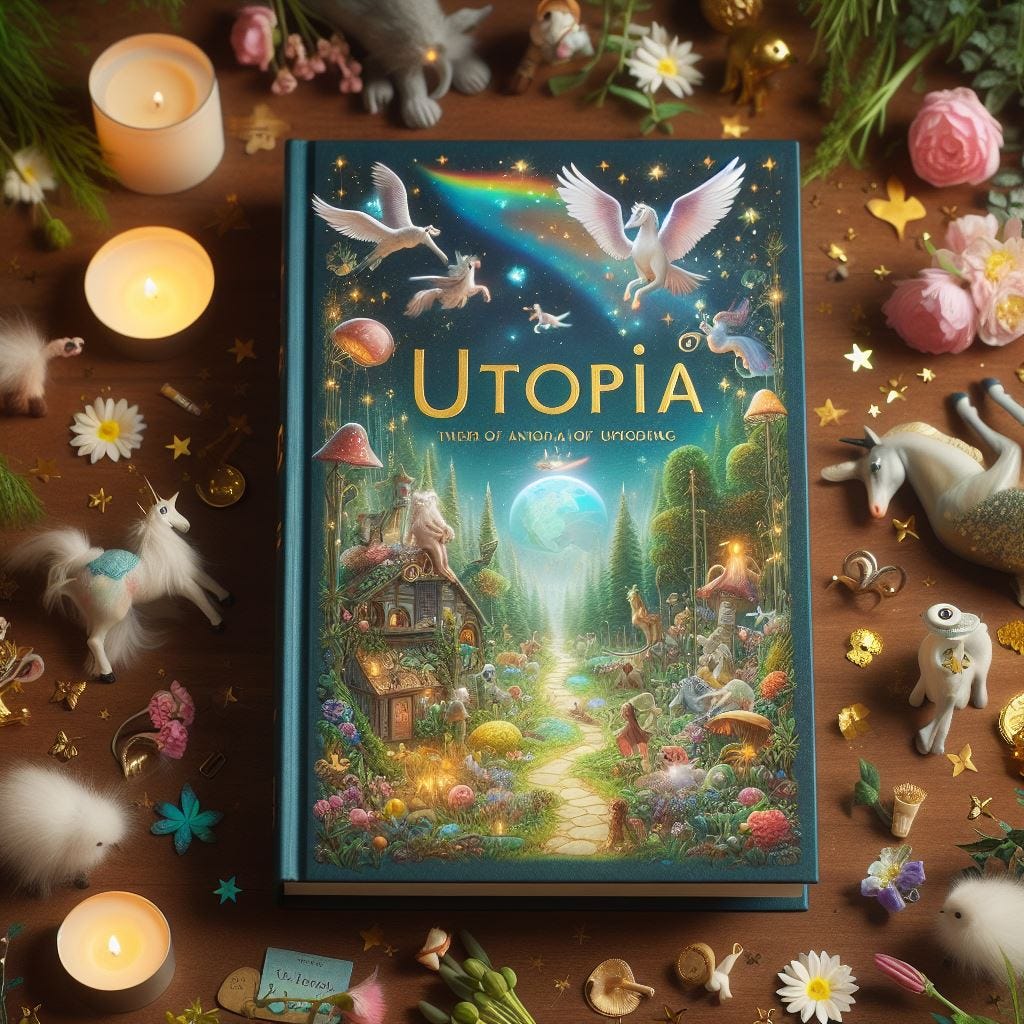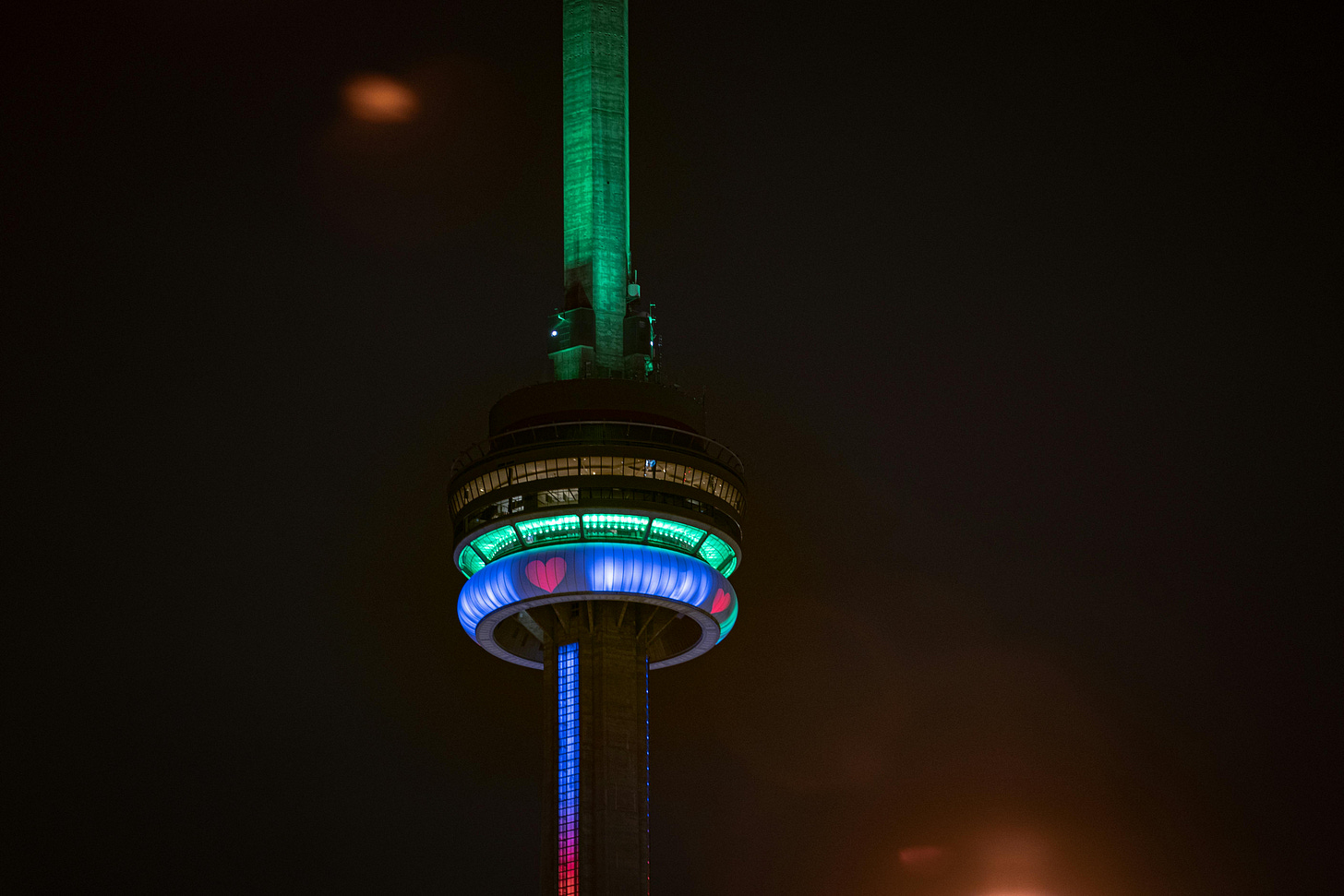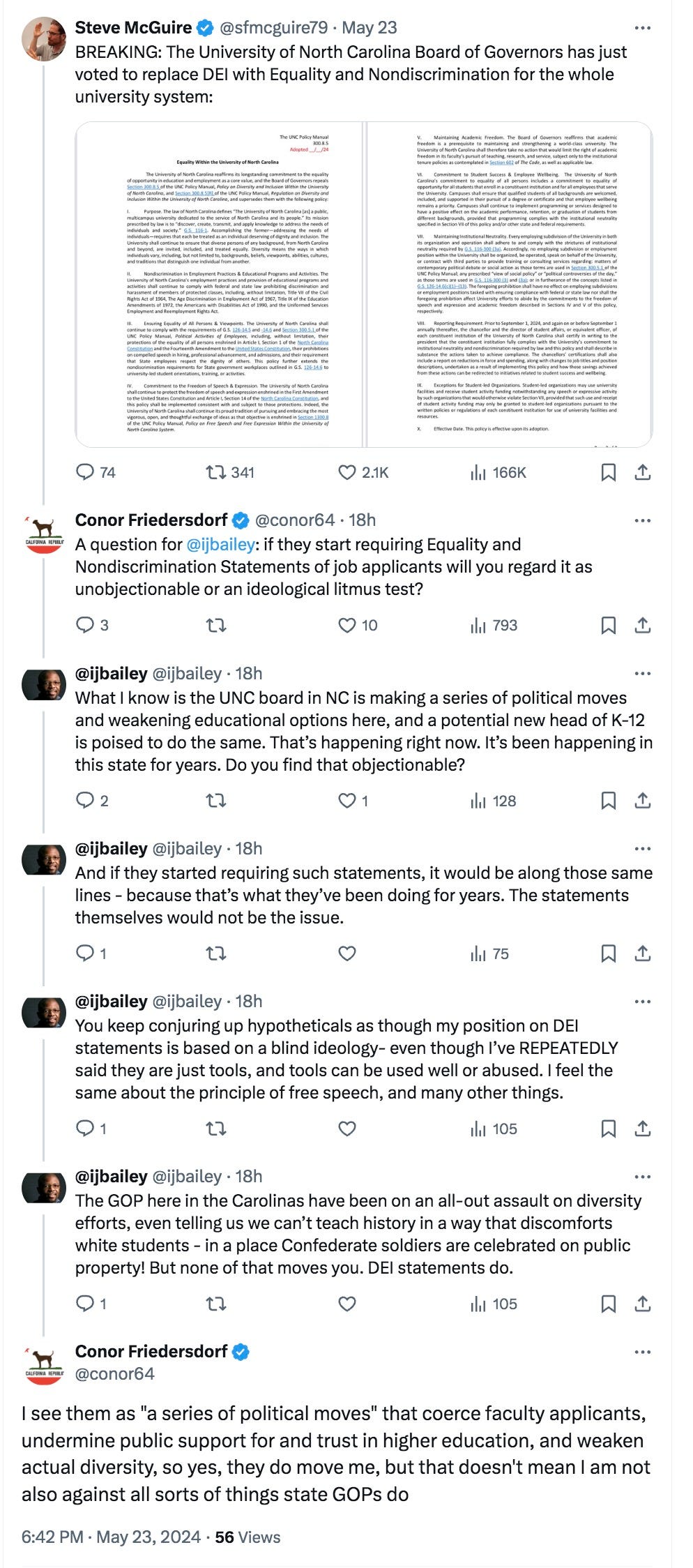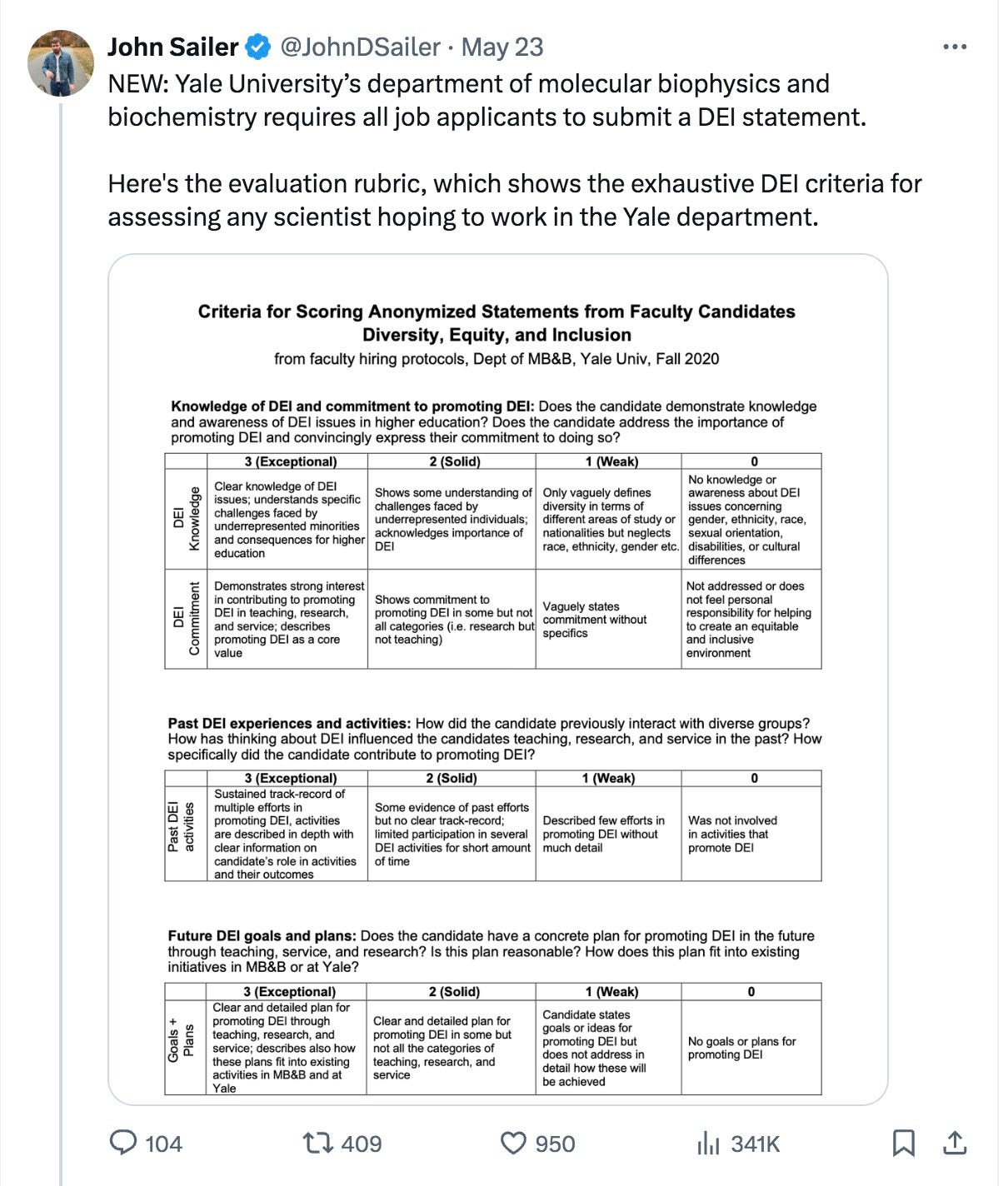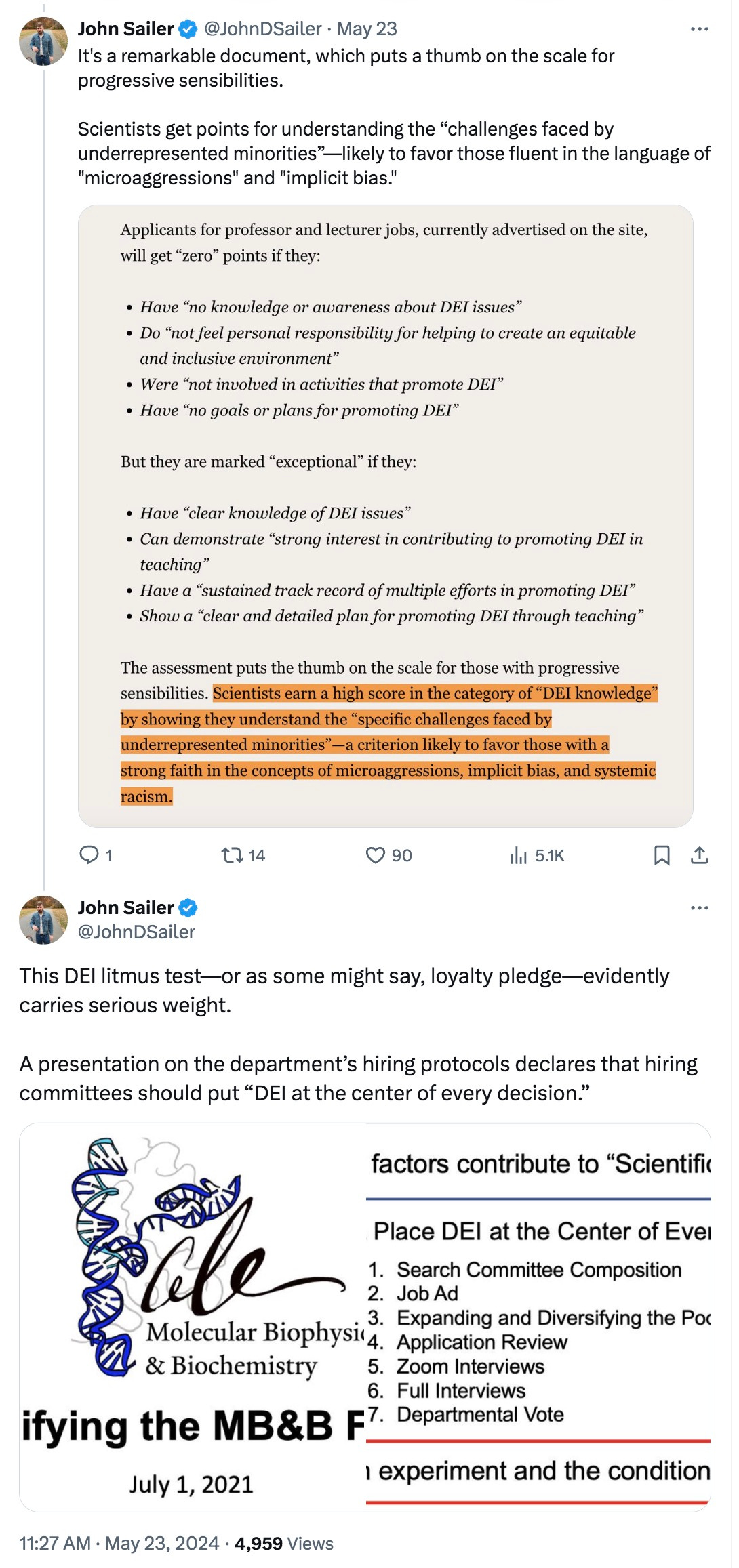E-Pluribus | May 24, 2024
Utopias are boring; employers have free speech rights, too; and Canada aims at "hate" and hits free speech.
A round-up of the latest and best musings on the rise of illiberalism in the public discourse:
Ewan Morrison: The Problem with Utopias
One answer to the dearth of utopian fiction is the old journalistic saw, “if it bleeds, it leads.” In a utopia, nobody bleeds, or if they do, they’re patched up post haste. At Quillette, Ewan Morrison examines literature’s thin utopian portfolio as he seeks further explanation about why dystopian fiction is far more popular than its sanguine sibling.
As progressive politics takes another step towards dominance across the west, there has been yet another resurgence of utopianism. The French Revolution is invoked in the Autonomous Zone of Seattle; there is talk once again of abolishing police forces and prisons; and of having a self-sustaining, global green economy. The World Health Organisation is even claiming that the Covid-19 pandemic could lead us towards a “healthier, fairer, more green world.”
[. . .]
You might imagine that there would be a vast, rich, and diverse world of utopias in fiction, a huge map of possibilities, but in reality the genre is not only minuscule but unimaginative, repetitious, and formulaic. Utopian fiction is an unintended testament to the failure of the utopian imagination, and, importantly, this could have a bearing on politics that locate Utopia (consciously or unconsciously) as a destination for humankind.
Utopian fiction has produced very few high quality, enduring works: barely forty in the last five hundred years. None have achieved the visibility of the genre’s pioneering tome: Thomas More’s Utopia (1519). Even More’s title points to the impossibility of actualising such a place: utopia means “nowhere” (from the Greek ou “not” and topos “place”).
One of the reasons why utopias are so unpopular is that—unlike dystopias—they present few good opportunities for storytelling and plot lines. Utopias have very little adventure or jeopardy. Even the classics are rigid, with almost no action or tension and narratives that are really just essays full of didactic exposition, as can be seen in New Atlantis, The Isle of Pines, Utopia, A Description of a New World Called the Blazing-World, The Voyage to Icaria, Erewhon, Looking Backward, Walden Two, H.G. Wells’s A Modern Utopia and Aldous Huxley’s Island. All these fictions depict utopias in which the human emotions of envy, lust, hate, and greed have vanished, and they all use exactly the same pedantic narrative structure.
[. . .]
Another utopia completely dependent upon declaring positivity and embroidering it with happy adjectives is James Hilton’s Lost Horizon (1933). The name of his utopia has entered the language: Shangri-La.
Shangri-La is a place of “total loveliness.” The protagonist’s guides are “good humoured and mildly inquisitive, courteous and carefree” as they tour “one of the pleasantest communities … ever seen.” The inhabitants of Shangri-La live for two hundred and fifty years: “decades hence, you will feel no older than you are today—you may preserve … a long and wondrous youth … you will achieve calmness and profundity, ripeness and wisdom.”
The best written and most imaginative of all utopias is Charlotte Perkins Gilman’s Herland (1915), but it too is almost completely dependent upon the same trick of stringing together long lists of happy adjectives. In this entirely female parthenogenetic collectivist utopia, the children are “vigorous, joyous, eager little creatures,” who “knew Peace, Beauty, Order, Safety, Love, Wisdom, Justice, Patience and Plenty,” in a “big, bright, friendly world full of the most interesting and enchanting things to learn about and to do,” in which “the people everywhere were friendly and polite.”
[. . .]
The real consequences of the erasure of negatives become apparent in a utopia that is almost entirely defined by what it is not: Aldous Huxley’s Island (1962). In this lost tropical paradise in which Buddhism is fused with tantra, the inhabitants “do not fight wars,” there is “no established church,” there are “no omnipotent politicians or bureaucrats,” no “captains of industry or omnipotent financiers,” or “any kind of dictator.” How can any of this be achieved? Huxley is a little braver than those utopian writers who skirt around the real consequences of erasing negatives: he advocates getting rid of bad people by “improving the race.”
Read it all here.
Wall Street Journal Editorial Board: Democracy Dies in Silence
No one likes to defend the boss, but the Wall Street Journal editorial board says employers deserve free speech protection just as much as anyone else. As states (pushed by unions) try to pass legislation to control what employers can and cannot say or require employees to do or not do, the WSJ board suspects the motivations may be — brace yourself — political.
Americans may have heard that democracy is under threat from MAGA Republicans, but what about from one-party progressive states? Witness how Illinois and other Democratic-controlled states are trying to muzzle their political opponents.
Democrats in Springfield are racing to pass legislation before their legislative session concludes this week to prohibit employers from discussing “religious or political matters” at mandatory meetings. While Democrats claim to be protecting workers from intimidation, their real goal is to silence employers.
The bill defines “political matters” broadly to include proposals to change public policy, as well as the “decision to join or support any political party or political, civic, community, fraternal, or labor organization.” Its similarly expansive definition of “religious matters” sweeps in support for a “religious organization or association.”
Forget about starting a meeting with a prayer. Nor could employers talk about the costs of unions or state policies. Criticizing Chicago Mayor Brandon Johnson and advocating an expansion of state tax-credit school scholarships would be off-limits. The bill could be construed to prohibit employers from criticizing anti-Israel protesters.
Driving the bill are unions, which accuse employers of holding “captive audience” meetings to persuade workers against joining. But the federal National Labor Relations Act explicitly permits employers to express “any views, argument, or opinion” about unions as long as their “expression contains no threat of reprisal or force or promise of benefit.”
Democrats claim their bill doesn’t forbid employers from expressing their political or religious views, but merely prohibits them from penalizing workers who don’t attend meetings where such matters are discussed. This is a distinction without a practical difference.
Read the whole thing.
Jeffrey Cieslikowski: Canada’s Assault on Free Speech
Canada’s national anthem declares the country to be “the True North strong and free.” If Justin Trudeau’s party gets its way, an asterisk may need to be added to the end of that phrase. Jeffrey Cieslikowski writes at Persuasion that, following the same playbook some European countries are using to target “hate speech,” Canada is poised to criminalize speech with its proposed Online Harms Act.
In late February, Justin Trudeau’s Liberal Party introduced in the Canadian Parliament the long-awaited Online Harms Act, which provides the government with extensive and explicit authority to regulate “content that foments hatred.”
With the stated goal of “enabl[ing] persons in Canada to participate fully in public discourse and exercise their freedom of speech online without being hindered by harmful content,” the bill focuses on a standard of “detestation”—restricting expression if it generates “detestation or vilification” of people of a protected class, such as race, religion, gender identity, and sexual orientation.
Like most other Western countries, Canada already has restrictions in place against “hate speech,” but the Online Harms Act vastly furthers their scope. At present, a Canadian who “willfully promotes hatred against any identifiable group” is liable to serve up to two years in prison and one who commits the nebulous crime of “promot[ing] genocide” via speech may serve up to five years. Under the proposed bill, these sentences grow, respectively, to five years and life in prison.
[. . .]
The bill has, rightly, come under concerted criticism. Andrew Coyne in The Globe and Mail called it “breathtaking in its recklessness.” Famed novelist Margaret Atwood described it as “Orwellian,” tweeting that “the possibilities for revenge false accusation + thoughtcrime stuff are sooo inviting.” The idea of extended prison sentences for speech is so draconian that it is hard to believe that Canada is proceeding with it—and ignoring the mountain of criticism from free speech advocates.
[. . .]
Considering the trajectory of Canadian law regarding free speech, then, the Online Harms Act is not a departure from an historically speech-protective society but a continuation of Canada’s tendency to subordinate free expression to other values. The extremes of the Online Harms Act, however, call into question not only the wisdom of Canadian jurisprudence, but the entire legal tradition that permits such sweeping exceptions to free speech.
[. . .]
What these countries fail to appreciate is that free speech necessarily retains a unique status in a democratic society, one that cannot be subordinated to other values. As free speech theorist Alexander Meiklejohn once wrote, “When men decide to be self-governed, to take control of their behavior, the search for truth is not merely one of a number of interests which may be ‘balanced,’ on equal terms, against one another. In that enterprise, the attempt to know and to understand has a unique status, a unique authority, to which all other activities are subordinated.”
Free expression is the mechanism by which citizens in a democracy seek this knowledge and understanding that Meiklejohn references. A democracy, by definition, derives its consent from the people. When the government gets in the business of regulating ideas and opinions, the citizenry can no longer debate and deliberate freely, and, thus, the basis of democracy crumbles.
The more a government regulates ideas, the further that country drifts from democracy, even if its purported goal of regulating speech is to further “a free and democratic society,” as Canada claims to do.
Read it all.
Around Twitter (X)
Conor Friedersdorf engages Davidson College professor Isaac Bailey in a conversation about anti-DEI moves by the UNC Board of Governors:
Here’s part of a thread from John Sailer on one Yale University department’s rubric for evaluating DEI statements from prospective employees:
And finally, as we head into Memorial Day, Matt Yglesias sees a possible silver lining for liberals in the Samuel Alito flag storm:




